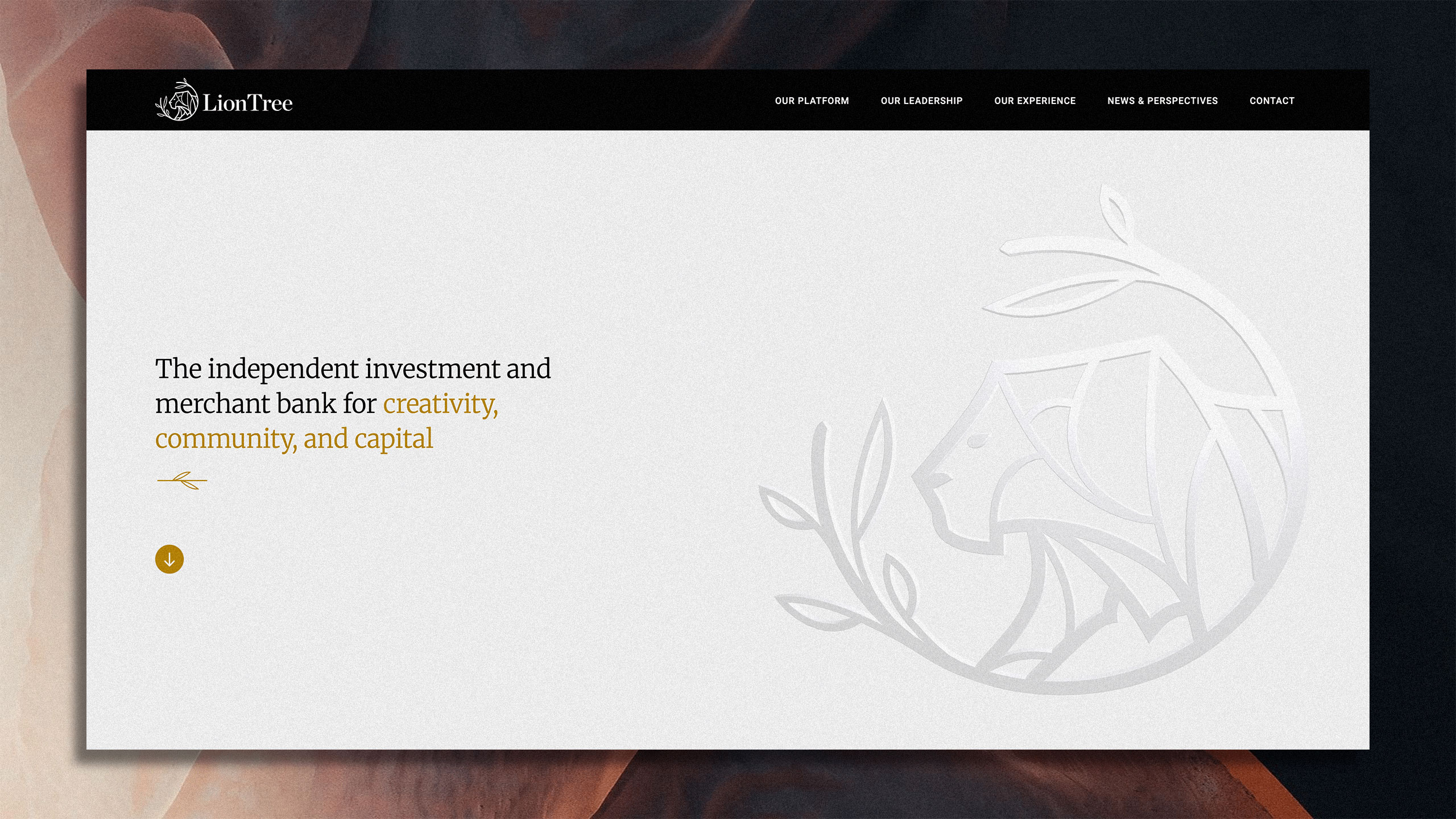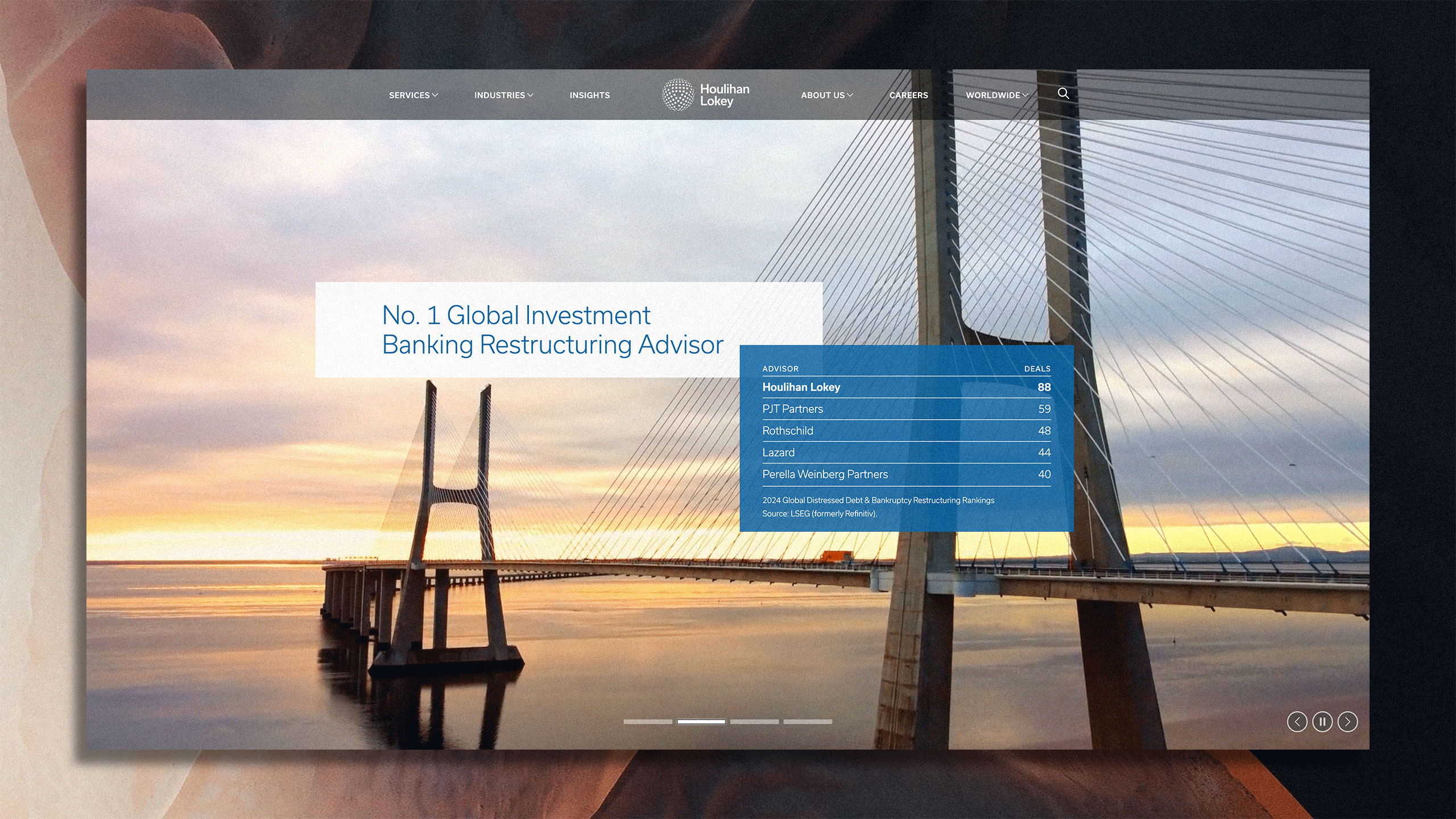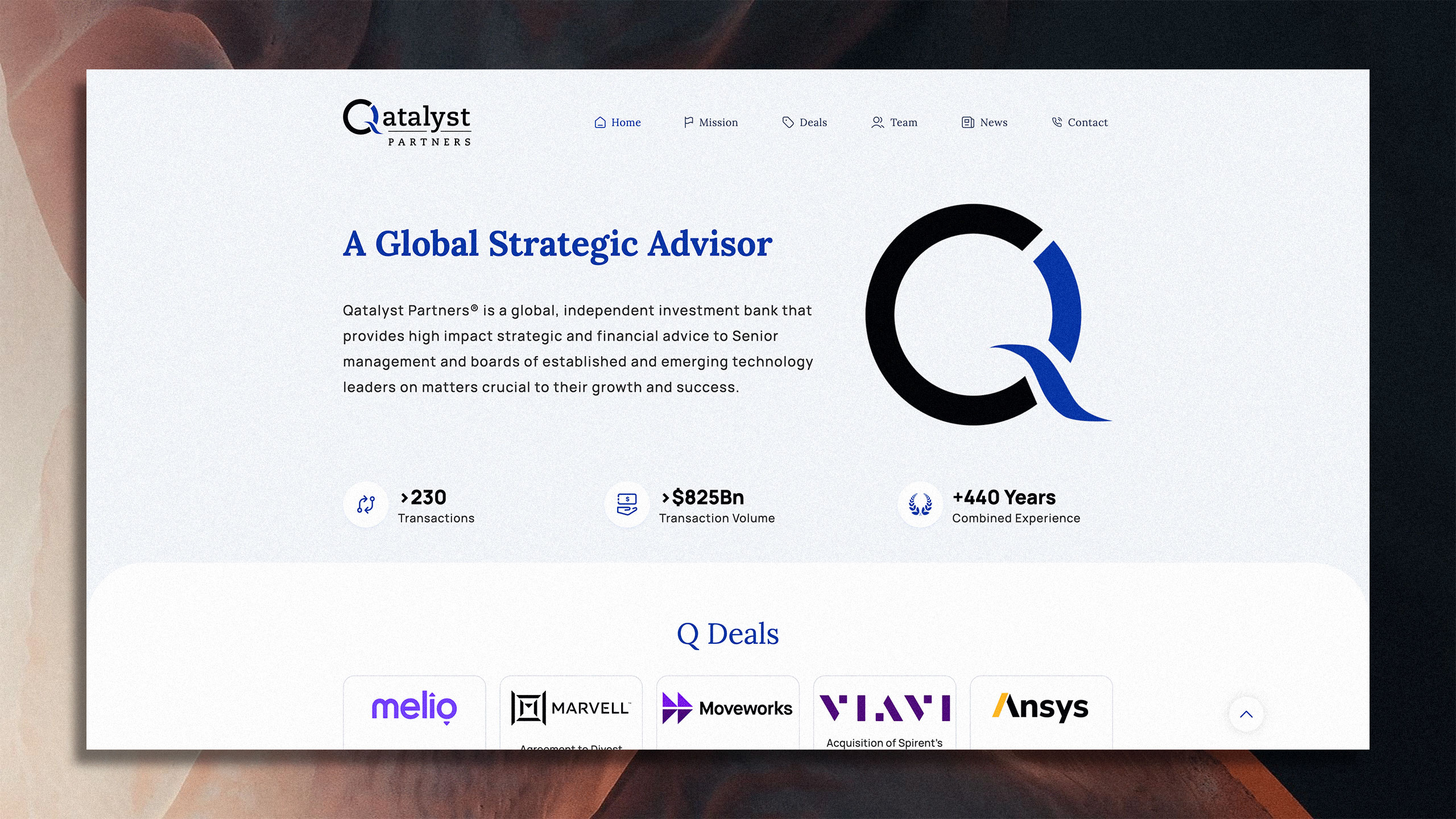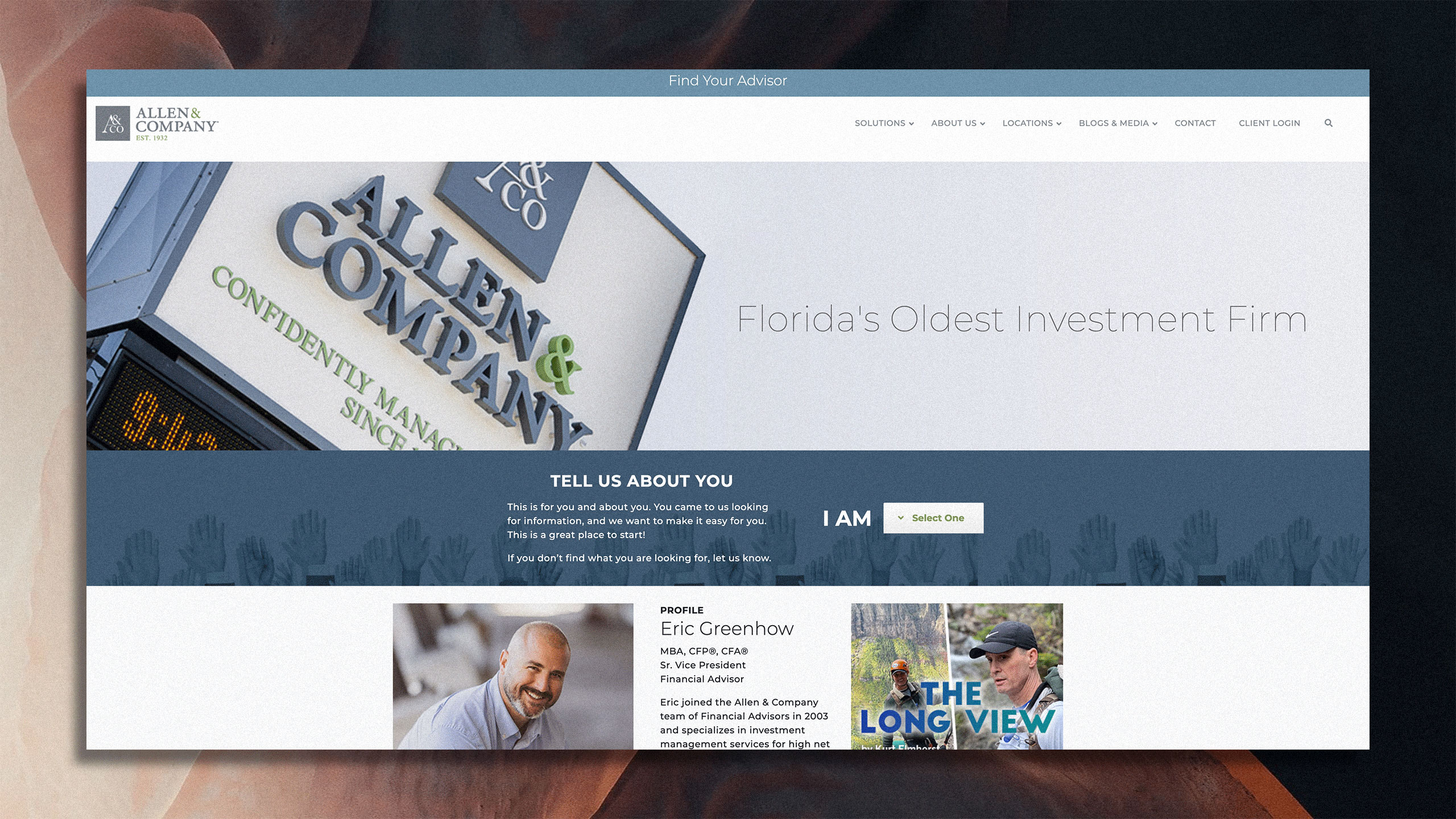
Top Investment Banking Consulting Firms to Work With - October 2025
Introduction
Investment banking consulting has evolved rapidly over the past year, driven by market volatility, regulatory shifts, and increasing demands for specialized financial strategy. In October 2025, selecting the right investment banking consulting firms is more critical than ever for firms navigating high-stakes decisions.
While internal strategy teams are expanding, investment banking consulting firms remain essential for their deep expertise, broader market perspective, and the ability to scale beyond internal bandwidth—often at a more efficient cost. In this article, we reveal the top 10 investment banking consulting firms shaping the global financial landscape today.
Top 10 Investment Banking Consulting Firms
1. G & Co.
G & Co. is a top-tier investment banking consulting firm that partners with global financial institutions to deliver transformative strategies, M&A advisory, and digital innovation services tailored for today’s competitive capital markets.
Recognized for its deep specialization in banking consulting services, G & Co. supports investment banks, private equity firms, and financial service providers across critical areas—from digital modernization to portfolio strategy and operational efficiency. Known for its strategic clarity, execution excellence, and high-touch collaboration model, G & Co. stands out among banking consulting firms by offering flexible, insight-driven support for institutions navigating disruption, consolidation, and growth.
G & Co. is a minority business enterprise (MBE), as certified by the National Minority Supplier Development Council (NMSDC). If diversity inclusion is a part of your supplier process, contact us—we may be a great fit for your enterprise.

2. Evercore
Evercore stands out as a top banking consulting company, delivering premium investment banking consulting and banking consulting services in M&A, restructuring, and equity research to Fortune 500 firms globally.
With over $4.7 trillion in deal experience, Evercore’s advisory work spans mergers, divestitures, capital raises, and macro-driven research, helping leading institutions—including tech and healthcare clients—navigate market complexity with deep domain expertise.

3. Moelis & Company
Moelis & Company delivers strategic investment banking consulting and comprehensive banking consulting services through global M&A, restructuring, and financing advisory to corporations, governments, and private equity.
Founded in 2007, Moelis has supported over $4 trillion in transactions and maintains 20 offices worldwide, advising clients on complex deals, recapitalizations, and distressed situations with combined depth of consulting services for banks and capital strategy.

4. Greenhill & Co.
Greenhill & Co. is a specialized bank consulting company known for its independent M&A advisory and restructuring consulting services, offering transaction guidance in high-complexity situations.
Active since 1996, Greenhill has advised on nearly $3 trillion of global deals—including high-profile public sales, carve-outs, and restructurings—and is recognized as a trusted banking consulting firm to governments and large corporates in critical finance events.

5. Perella Weinberg Partners
Perella Weinberg Partners excels as a boutique banking consulting firm delivering investment banking consulting and banking consulting services in M&A, restructuring, capital raising, and SPAC advisory.
Since 2006, PWP has executed high-profile transactions—from Medtronic’s $42.9 billion acquisition to major restructurings and SPAC deals—offering clients across industries a combination of advisory depth and operational support.

6. LionTree
LionTree is a niche investment banking consulting firm specializing in TMT (technology, media, telecom) strategy, providing boutique banking consulting services and M&A expertise within global media and tech sectors.
Founded in 2012 by former UBS bankers, LionTree combines investment banking advisory with merchant banking and media insights, advising major tech and media clients across the U.S. and Europe with targeted capital-market strategies.

7. Houlihan Lokey
Houlihan Lokey is a recognized investment banking consulting firm offering high-caliber banking consulting services in financial advisory, valuation, M&A, and restructuring.
Known for its global restructuring and valuation practice, Houlihan Lokey guides mid‑market and corporate clients through sell-side and buy-side transactions, debt advisory, and capital raising—leveraging its technical expertise for tailored deal support.

8. Qatalyst Partners
Qatalyst Partners is a boutique bank consulting company focused on strategic M&A advisory and investment banking consulting services within tech and growth sectors.
The firm specializes in high-stakes tech transactions, offering senior banker-led execution on sell-side and buy-side deals; its boutique model delivers dedicated attention to strategic buyers and disruptors in the technology space.

9. Guggenheim Partners
Guggenheim Partners provides specialized investment banking consulting and banking consulting services, with strengths in media, entertainment, and finance advisory.
Operating as an independent firm, Guggenheim handles M&A, strategic advisory, asset management, and restructuring for corporate clients, offering focused expertise in complex sectors and providing attentive boutique-style service.

10. Allen & Company
Allen & Company is a discreet bank consulting firm known for its elite investment banking consulting services in media, tech, and high-value corporate transactions.
This boutique firm, often under the radar, advises on significant deals within entertainment and tech—with tight-knit teams and curated client lists—offering personalized banking consulting services grounded in trusted relationships.

Let’s kickstart the conversation and design stuff people will love.

What Is Investment Banking Consulting?
Investment banking consulting refers to the specialized advisory services provided to investment banks, financial institutions, and capital markets players to help them navigate strategic, operational, regulatory, and market challenges. These services support banks in areas such as M&A strategy, post-merger integration, capital allocation, regulatory compliance, risk management, organizational design, and digital transformation. Unlike traditional management consulting, investment banking consulting is tailored to the high-stakes, transaction-intensive nature of capital markets, where precision, speed, and deep financial expertise are essential. The work often combines industry benchmarking, quantitative modeling, and stakeholder alignment to deliver recommendations that drive profitability, efficiency, and long-term resilience.
How Does Investment Banking Consulting Work?
Investment banking consulting operates through a structured, data-driven engagement model that begins with diagnosing a client’s business challenge—ranging from market entry and strategic planning to deal execution or operational transformation. Consultants conduct rigorous analyses, including financial modeling, competitor benchmarking, regulatory impact assessments, and client segmentation studies to uncover actionable insights. Engagements typically unfold in phases: discovery, hypothesis development, solution design, and implementation support. Consulting firms often work closely with senior leadership and deal teams to align strategies with internal objectives and market realities. The approach prioritizes both strategic clarity and execution feasibility, helping investment banks make informed, high-impact decisions in complex and evolving environments.
What Is an Investment Banking Consulting Firm?
An investment banking consulting firm is a professional services organization that provides strategic and operational advisory tailored to the unique needs of investment banks, capital markets firms, and financial intermediaries. These firms specialize in solving high-complexity challenges such as capital optimization, regulatory change management, post-merger integration, digital enablement, and organizational redesign. Unlike full-service consulting firms, those focused on investment banking bring deep sector expertise, financial modeling capabilities, and an understanding of transactional dynamics. They play a critical role in advising leadership teams on growth, risk, efficiency, and competitiveness, often serving as external thought partners during pivotal transformation moments or deal cycles.
Investment banking consulting firms bring a unique blend of strategic insight, financial expertise, and transactional experience to help institutions navigate the complexities of global capital markets. Their capabilities extend far beyond advisory support, encompassing everything from M&A strategy and capital allocation to regulatory compliance, risk modeling, and operational transformation. In an industry defined by volatility, speed, and precision, these firms act as critical partners—helping investment banks sharpen decision-making, unlock value, and strengthen competitive positioning. The following section outlines the core capabilities that define a leading investment banking consulting firm and how they support clients across every phase of the banking value chain.
What Services Do Investment Banking Consulting Firms Provide?
Mergers & Acquisitions (M&A) Strategy
Investment banking consulting firms support clients through every phase of the M&A lifecycle—from target identification and strategic fit analysis to due diligence, valuation, and post-merger integration. These firms provide an objective lens to evaluate inorganic growth opportunities, develop synergy models, and outline integration roadmaps that preserve value and mitigate risk. Consultants also work closely with executive leadership to align deal rationale with long-term business strategy, while navigating regulatory complexities and stakeholder concerns.
Capital Markets Advisory
Consulting firms offer guidance to investment banks and their clients on structuring and executing capital markets transactions, including IPOs, debt issuances, and equity offerings. This includes market entry strategies, investor targeting, pricing analysis, and transaction readiness. By leveraging data-driven insights and deep market expertise, investment banking consulting firms help clients position offerings competitively while managing compliance, timing, and investor relations dynamics.
Post-Merger Integration
Following the close of a transaction, consulting firms play a vital role in designing and executing integration strategies that capture deal value. This includes aligning operating models, consolidating systems, harmonizing culture, and realizing cost and revenue synergies. Consultants often lead integration management offices (IMOs) to coordinate across functions, track milestones, and ensure accountability, particularly during complex cross-border or multi-entity mergers.
Regulatory Compliance & Risk Strategy
Investment banking consulting firms help clients anticipate, interpret, and adapt to evolving regulatory landscapes across jurisdictions. Services include gap assessments, compliance framework design, stress testing, and risk appetite calibration. Firms also assist in operationalizing regulatory change by embedding governance mechanisms and aligning internal policies with new requirements—ensuring that compliance becomes a competitive advantage rather than a constraint.
Operational Efficiency & Cost Transformation
To remain competitive in a margin-constrained environment, investment banks increasingly turn to consulting firms to redesign processes, optimize cost structures, and improve operational agility. This includes front-to-back office transformation, digitization of workflows, vendor consolidation, and workforce productivity enhancements. Consultants apply performance benchmarks and scenario modeling to identify high-impact efficiency opportunities, ensuring sustainable cost reductions without compromising quality or control.
Digital & Technology Enablement
Consulting firms help investment banks modernize legacy systems, adopt emerging technologies, and develop digital-first operating models. Capabilities range from tech strategy development and platform selection to data governance, cybersecurity, and AI implementation. Consultants also facilitate cloud migration, intelligent automation, and CRM integration to improve scalability, client engagement, and operational resilience in fast-moving capital markets.
Organizational Design & Talent Strategy
As investment banks restructure around new priorities and operating models, consulting firms guide clients in redesigning their organizational structures, redefining roles, and developing talent strategies to support long-term performance. This includes capability assessments, workforce planning, succession management, and upskilling programs tailored to regulatory, digital, and global market demands. Effective design ensures agility, accountability, and alignment across front, middle, and back-office functions.
Strategic Planning & Growth
Investment banking consulting firms collaborate with leadership teams to define strategic priorities, evaluate growth opportunities, and build roadmap scenarios aligned with changing market dynamics. This includes competitor benchmarking, market sizing, client segmentation, and product strategy. Consultants bring structured frameworks and financial modeling rigor to inform capital allocation decisions and support long-term value creation.
How Long Does an Investment Banking Consulting Engagement Take to Complete?

Understanding the typical timelines of an investment banking consulting engagement helps set realistic expectations for scope, depth, and delivery. While timelines vary based on the complexity of the project, most engagements are structured around distinct phases—diagnostic, strategic design, and implementation support. Some advisory efforts, such as M&A due diligence or capital markets readiness, may be completed in a few weeks, while broader transformations like post-merger integration or cost optimization can span several months. This section outlines common engagement durations and the factors that influence how long a consulting firm works with investment banking clients—from project scale to regulatory considerations and organizational readiness.
Project Scope and Complexity
The breadth and depth of the engagement significantly influence how long a consulting project will take. A narrowly defined initiative—such as competitive benchmarking or market entry analysis—can often be completed in a few weeks. In contrast, complex engagements involving multiple workstreams, such as full-scale post-merger integration or enterprise-wide cost transformation, typically extend over several months. Clients should align on clear objectives and deliverables at the outset to ensure timelines are realistic and manageable.
Regulatory and Compliance Requirements
Projects involving regulatory strategy or compliance transformation often require longer timelines due to the intricacy of legal requirements, jurisdictional variations, and the need for stakeholder alignment. Regulatory-driven engagements may also involve additional layers of approval, legal review, or validation by compliance officers, which can impact the overall pace of execution. Clients should be prepared for extended timelines when navigating cross-border regulations or coordinating with external regulators.
Internal Stakeholder Readiness
The level of preparedness and engagement from internal teams plays a critical role in determining the speed of a consulting engagement. When decision-makers are readily accessible and cross-functional teams are aligned, progress accelerates. Conversely, unclear ownership, competing priorities, or internal silos can delay key phases such as data collection, validation, and implementation. Establishing a dedicated internal project sponsor or steering committee can help maintain momentum.
Data Availability and Quality
Timely access to accurate, comprehensive data is foundational to any consulting engagement. If critical financial, operational, or market data is missing, outdated, or fragmented, additional time may be required for data discovery, cleansing, or verification. Investment banking consulting firms often build initial timelines assuming prompt data access; delays in this area can push back analysis, recommendations, and final delivery.
Level of Customization Required
Engagements that require highly tailored solutions—such as designing bespoke M&A strategies, creating custom financial models, or configuring specialized operating models—naturally take longer than standardized or framework-based consulting projects. While customization can lead to more impactful outcomes, clients should anticipate that personalized work involves deeper discovery, iterative validation, and more time-intensive stakeholder input.
Number of Geographies or Business Units Involved
Engagements that span multiple countries, regulatory environments, or business units require greater coordination and longer execution windows. Additional time is often needed for stakeholder interviews, regional adaptation of recommendations, and multi-market impact assessments. Clients pursuing global strategies or organizational redesigns across regions should budget extra time for alignment and implementation readiness across all affected areas.
Implementation Support Required
If a consulting firm’s scope includes not just strategy development but also hands-on implementation support, the overall engagement duration will increase accordingly. Projects that involve pilot testing, change management, technology rollout, or post-deal integration often extend over several phases. Clients should clarify whether they are seeking a short-term strategic engagement or long-term support through execution, as this distinction heavily influences timeline expectations.
How Investment Banking Consulting Firms Price Their Work
Pricing is a critical consideration when engaging an investment banking consulting firm, as it reflects not only the complexity and scope of the project but also the level of expertise, customization, and strategic value provided. Unlike standardized service models, investment banking consulting engagements are often tailored to each client’s unique needs—ranging from quick-turnaround advisory to multi-month transformation programs—which can significantly influence cost. This section breaks down the key factors that impact pricing, the common fee structures used by consulting firms, and what prospective clients should expect when budgeting for high-impact financial advisory support.
Project Scope and Duration
The overall scope and length of an engagement are primary drivers of pricing for investment banking consulting services. Short-term projects focused on strategy validation or market analysis may be priced as fixed-fee packages, while longer engagements—such as post-merger integration or cost transformation—often incur higher costs due to the extended time commitment and deeper resource involvement. Firms typically assess the number of deliverables, required workstreams, and expected timeline to determine baseline pricing tiers.
Level of Customization
Highly tailored engagements that require bespoke financial modeling, industry-specific insights, or regulatory advisory often carry premium pricing. Investment banking consulting firms factor in the degree of customization needed—such as client-specific templates, unique data models, or one-off frameworks—because these demands increase both effort and risk. The more personalized the solution, the higher the associated costs, reflecting the added expertise and development time involved.
Resource Mix and Seniority
Pricing is also influenced by the composition of the consulting team assigned to the project. Engagements that require significant involvement from senior partners, subject matter experts, or industry veterans will be priced higher due to their experience and billable rate. Conversely, projects staffed primarily with associates or analysts may have lower blended rates. Investment banking consulting firms often present clients with a resource plan that reflects the level of talent and specialization required to achieve the engagement’s goals.
Complexity of the Problem
Projects involving high-stakes decisions—such as M&A strategy, regulatory response, or balance sheet restructuring—typically command higher fees due to the complexity and associated risk. Consulting firms take into account the analytical rigor, stakeholder sensitivity, and strategic importance of the issue when pricing their services. The more nuanced and business-critical the problem, the more comprehensive and costly the advisory support tends to be.
Geographic Scope
Engagements that span multiple geographies often involve higher pricing due to travel costs, localization needs, jurisdictional regulatory knowledge, and added project coordination. Investment banking consulting firms account for regional differences in labor costs, legal standards, and client expectations when developing global engagement pricing. Firms may also factor in additional fees if consultants are required to be on-site across multiple locations.
Speed and Turnaround Expectations
Urgent or time-sensitive projects, such as deal support under tight deadlines or regulatory filings requiring rapid execution, often result in higher pricing. Investment banking consulting firms may apply a premium when engagements demand accelerated timelines, extended hours, or prioritized resource allocation. The faster the turnaround required, the more intensive the staffing and delivery model—and thus the higher the cost.
Why Hire an Investment Banking Consulting Firm

Choosing to work with an investment banking consulting firm can be a decisive advantage for financial institutions navigating complex, high-stakes challenges. These firms offer specialized expertise, objective insights, and scalable resources that internal teams may not always have the capacity or experience to deliver. Whether addressing strategic growth, regulatory shifts, M&A execution, or operational transformation, investment banking consulting firms bring a disciplined approach grounded in industry knowledge and analytical rigor. This section explores the key reasons organizations turn to these firms—and the distinct value they deliver across every phase of the banking lifecycle.
Specialized Industry Expertise
Investment banking consulting firms bring deep, sector-specific knowledge that generalist teams often lack. Their consultants understand the nuances of capital markets, deal structures, regulatory pressures, and competitive dynamics that define the investment banking landscape. This specialized expertise allows them to deliver strategic recommendations grounded in real-world experience, benchmark performance against industry best practices, and anticipate challenges before they arise—making them invaluable partners during critical decision-making moments.
Objective Strategic Insight
One of the most important reasons to engage an investment banking consulting firm is the ability to receive objective, data-driven insights free from internal biases or institutional inertia. These firms provide an outside-in perspective that helps leadership teams challenge assumptions, assess risk more rigorously, and evaluate strategic options through an impartial lens. This objectivity is especially valuable in high-stakes situations such as M&A, restructuring, or organizational transformation, where internal alignment may be difficult to achieve.
Resource Flexibility and Bandwidth
Internal strategy and finance teams often face bandwidth limitations, especially during periods of rapid change or transaction activity. Investment banking consulting firms provide scalable support, offering additional capacity and highly skilled resources that can be deployed quickly and efficiently. Whether supplementing internal teams or leading end-to-end engagements, these firms allow organizations to move faster without sacrificing quality or strategic alignment.
Acceleration of Decision-Making
By bringing proven methodologies, financial modeling capabilities, and tested frameworks, investment banking consulting firms help accelerate the decision-making process. Their ability to synthesize large amounts of data, develop actionable scenarios, and facilitate stakeholder alignment can significantly shorten the time from problem identification to solution implementation. In time-sensitive environments like capital markets or regulatory response, this speed can be a competitive advantage.
Risk Management and Regulatory Navigation
Regulatory compliance, risk governance, and capital adequacy are core concerns in investment banking—and consulting firms provide critical support in these areas. Their familiarity with evolving global regulations, risk frameworks, and audit expectations enables clients to design robust compliance strategies and avoid costly missteps. From stress testing to policy alignment, investment banking consulting firms help clients stay ahead of regulatory shifts while maintaining operational integrity.
Enhanced Deal Execution and Value Realization
Whether planning a divestiture, acquisition, or capital raise, investment banking consulting firms offer the strategic and operational guidance needed to execute deals effectively and capture full value. They support everything from target screening and synergy analysis to integration planning and performance tracking. Their involvement often leads to smoother transactions, better post-deal outcomes, and stronger stakeholder confidence across the deal lifecycle.
How to Choose the Most Reliable Investment Banking Consulting Firm
Selecting the right investment banking consulting firm is a critical decision that can directly impact the success of a strategic initiative, transaction, or transformation effort. With a wide range of firms offering overlapping services, it’s essential to look beyond surface-level credentials and evaluate which partner brings the right mix of expertise, industry relevance, and execution capability. This section outlines the key considerations to keep in mind when choosing an investment banking consulting firm—from experience in specific deal types to alignment with internal teams—so businesses can engage a partner that drives measurable, lasting impact.
Relevant Industry and Deal Experience
When selecting an investment banking consulting firm, it’s critical to evaluate their experience within your specific industry and the types of transactions or strategic challenges your organization is facing. Firms that have successfully advised on comparable deals—such as cross-border M&A, IPO readiness, or regulatory response—will be better equipped to anticipate issues, apply proven frameworks, and deliver relevant insights. This relevance ensures faster onboarding, more effective recommendations, and a smoother engagement from start to finish.
Strategic and Operational Capabilities
The best investment banking consulting firms combine high-level strategic thinking with the ability to execute operationally. Look for firms that not only help shape the direction of your business but also support implementation—whether that’s building integration roadmaps, conducting financial modeling, or deploying change management initiatives. A consulting partner with both strategy and execution capabilities can drive end-to-end impact across the banking value chain.
Analytical Rigor and Methodology
Strong analytical capabilities are a hallmark of leading investment banking consulting firms. Their ability to structure problems, build financial and scenario models, and back recommendations with robust data is essential—especially in high-stakes engagements. Ask about the firm’s methodologies, benchmarking tools, and decision-making frameworks to assess whether their approach will deliver actionable and defensible outcomes tailored to your business.
Reputation and Client References
Reputation matters in investment banking consulting, particularly when the engagement involves sensitive, high-value, or time-critical work. A firm’s track record with similar clients or projects offers a strong indication of their reliability and performance. Seek client references, case studies, or evidence of repeat engagements with respected institutions to validate their credibility and ensure they can meet your expectations.
Senior-Level Involvement
The level of seniority on your consulting team can significantly affect the depth and quality of the engagement. Top firms ensure that partners and senior advisors are actively involved throughout the project—not just in the pitch phase. Their insight, network, and judgment are often what differentiate good advice from great execution. Confirm the role and time commitment of senior leaders before finalizing any agreement.
Cultural Fit and Collaboration Style
An effective consulting engagement relies not only on technical skill but also on strong working relationships. Cultural alignment between your organization and the consulting firm—such as communication style, pace of work, and decision-making preferences—can determine how smoothly the project runs. Choose a partner that can work seamlessly with internal teams, adapt to your organization’s rhythm, and build trust quickly with key stakeholders.
Flexibility in Engagement Structure
Every organization’s needs are different, and the best consulting firms understand the importance of flexibility. Whether you require a full-scale transformation partner or targeted advisory on a specific issue, the firm should be able to tailor its scope, pricing model, and resourcing accordingly. Look for a partner that offers adaptable engagement structures without compromising quality or impact.
15 Questions to Ask Investment Banking Consulting Firms Before You Hire One

Before hiring an investment banking consulting firm, it’s essential to ask the right questions to ensure alignment on capabilities, experience, and expectations. Given the complexity and high stakes of investment banking engagements, prospective clients should seek clarity on how a firm approaches strategy, execution, and client collaboration. This section outlines key questions to consider when evaluating a consulting partner—questions that go beyond credentials and dive into how the firm operates, delivers value, and supports long-term outcomes. Asking these questions upfront helps organizations make informed decisions and choose a firm that can deliver meaningful, measurable results.
Here are 15 thoughtful and strategic questions a prospective client might ask before hiring an investment banking consulting firm:
- What experience do you have advising clients in our specific industry or sector?
- Can you share examples of past engagements where your firm delivered measurable impact in investment banking or capital markets?
- How do you approach M&A strategy and post-merger integration for financial institutions?
- What is your methodology for structuring and supporting capital markets transactions?
- How do you help clients manage evolving regulatory and compliance requirements across jurisdictions?
- What is your process for ensuring alignment between senior leadership and cross-functional teams during engagements?
- Can you walk us through a typical timeline for a project like ours?
- How do you structure your pricing—hourly, fixed fee, milestone-based, or performance-based—and what’s included?
- Who will be working on our engagement, and what relevant experience do they bring?
- How do you ensure objectivity in your recommendations and avoid internal biases?
- What kind of implementation support do you offer beyond strategic advisory?
- How do you tailor your approach to engagements that require global coordination or multiple business units?
- What tools, frameworks, or data models do you use to support analysis and decision-making?
- How do you measure success and track performance during and after an engagement?
- Can you provide references or case studies from past clients with similar challenges?
1. What Experience Do You Have Advising Clients in Our Specific Industry or Sector?
Understanding a consulting firm’s industry-specific experience is essential because investment banking strategies and challenges can vary widely across sectors like financial services, healthcare, energy, or technology. A firm that has worked with similar clients will already understand the regulatory environment, competitive dynamics, and structural nuances of your industry—allowing them to deliver more relevant, faster, and more actionable guidance. This question helps gauge whether the firm can offer insights that go beyond generic frameworks and instead apply lessons learned from similar engagements.
2. Can You Share Examples of Past Engagements Where Your Firm Delivered Measurable Impact in Investment Banking or Capital Markets?
Asking for specific examples of past success helps validate a consulting firm’s ability to deliver results in high-stakes, complex environments. Measurable outcomes—such as accelerated deal timelines, realized synergies, improved cost structures, or enhanced market positioning—show that the firm can go beyond strategy to implementation. This question also helps uncover whether the firm has worked with clients facing challenges similar to yours and whether they’ve been able to move the needle in a meaningful, quantifiable way.
3. How Do You Approach M&A Strategy and Post-Merger Integration for Financial Institutions?
M&A in investment banking is often fast-paced and high-risk, and integration missteps can erode deal value quickly. Asking about the firm’s M&A approach reveals how they support clients through both the strategic planning and operational phases of a deal. Firms with a structured methodology for target screening, synergy modeling, integration governance, and change management are better positioned to help you achieve long-term value from your transaction—not just get the deal over the line.
4. What Is Your Methodology for Structuring and Supporting Capital Markets Transactions?
Capital markets engagements require deep expertise, fast execution, and regulatory precision. Understanding a consulting firm’s methodology for advising on IPOs, debt issuances, equity offerings, or secondary placements allows you to assess whether their process is robust enough to meet market expectations. This question also sheds light on the firm’s ability to support readiness assessments, investor positioning, and post-transaction analysis—key to achieving both short-term success and long-term impact.
5. How Do You Help Clients Manage Evolving Regulatory and Compliance Requirements Across Jurisdictions?
The regulatory landscape is constantly shifting, and financial institutions face mounting complexity across multiple jurisdictions. Asking this question helps you evaluate whether a consulting firm has the depth of compliance expertise and operational experience needed to help navigate these changes effectively. It also uncovers whether the firm can support you not just with understanding rules, but with designing scalable governance frameworks that embed compliance into business operations.
6. What Is Your Process for Ensuring Alignment Between Senior Leadership and Cross-Functional Teams During Engagements?
Strategic initiatives often falter due to misalignment between leadership vision and on-the-ground execution. A firm’s ability to facilitate alignment across stakeholders—from the C-suite to business unit leads—is critical for engagement success. This question reveals how the firm manages communication, decision-making, and project governance to ensure everyone is pulling in the same direction. Strong answers will reference stakeholder mapping, executive workshops, and alignment checkpoints as standard practice.
7. Can You Walk Us Through a Typical Timeline for a Project Like Ours?
Understanding the expected timeline allows you to align internal resources, manage stakeholder expectations, and assess whether the firm has a structured delivery model. This question also helps uncover how the firm handles dependencies, milestone tracking, and timeline flexibility if priorities shift. An experienced consulting partner will provide not only a high-level project roadmap but also insight into how they adapt to unforeseen challenges without compromising quality.
8. How Do You Structure Your Pricing—Hourly, Fixed Fee, Milestone-Based, or Performance-Based—and What’s Included?
Transparency around pricing is key to budgeting and to understanding what value you’re getting for the cost. Asking this question helps determine whether the firm offers flexible engagement models that match the scope and risk profile of your project. It also reveals what services and deliverables are included in the fee—so there are no surprises halfway through the engagement. A detailed answer can help prevent cost overruns and ensure alignment on expectations.
9. Who Will Be Working on Our Engagement, and What Relevant Experience Do They Bring?
A consulting firm’s value is only as strong as the team they assign to your project. This question helps you assess the qualifications, seniority, and availability of the individuals who will be doing the actual work—not just those involved in pitching. It’s important to understand whether subject matter experts, senior partners, and execution-focused consultants will be involved throughout the engagement, and how roles are divided across strategy, analysis, and delivery.
10. How Do You Ensure Objectivity in Your Recommendations and Avoid Internal Biases?
Consultants are brought in to offer a fresh, impartial perspective. Asking how a firm maintains objectivity is important to ensure their advice is driven by data, independent analysis, and the client’s long-term interests—not internal politics or pre-formed assumptions. Firms that emphasize evidence-based decision-making, stakeholder input, and scenario modeling are more likely to provide recommendations that are both credible and actionable.
11. What Kind of Implementation Support Do You Offer Beyond Strategic Advisory?
Many consulting firms deliver strategy slides but stop short of supporting actual implementation. If your engagement requires execution—whether that’s rolling out a new operating model, managing integration, or deploying new systems—it’s important to ask about post-strategy capabilities. This question clarifies whether the firm can provide hands-on support, change management, training, and performance tracking to help you realize the intended impact of the engagement.
12. How Do You Tailor Your Approach to Engagements That Require Global Coordination or Multiple Business Units?
Complex engagements often span countries, legal jurisdictions, or internal divisions, which can increase risk and slow progress. Asking how a firm manages global or multi-entity coordination helps you understand their operational maturity and experience with complexity. Look for references to regional governance models, localization practices, and cross-border project management infrastructure that ensure consistency while adapting to local requirements.
13. What Tools, Frameworks, or Data Models Do You Use to Support Analysis and Decision-Making?
This question helps uncover whether a consulting firm is leveraging proprietary methodologies, advanced analytics, and proven decision-making tools to add value beyond qualitative advice. Tools like scenario modeling, risk scoring, and market benchmarking enable sharper analysis and faster insight generation. The firm’s response should give you confidence that their recommendations are grounded in structured, replicable methods rather than intuition alone.
14. How Do You Measure Success and Track Performance During and After an Engagement?
Measurable outcomes are a critical part of any consulting engagement. Asking this question helps ensure the firm defines success clearly, tracks key performance indicators, and provides ongoing visibility into progress. It also shows whether they stay accountable after the initial strategy phase, through post-engagement tracking or periodic check-ins. Look for references to ROI measurement, client satisfaction scores, and impact dashboards as part of their standard approach.
15. Can You Provide References or Case Studies From Past Clients With Similar Challenges?
References and case studies provide validation that the consulting firm has successfully handled similar engagements. This question also allows you to explore client satisfaction, project outcomes, and lessons learned from previous work. Firms that are confident in their impact will be able to provide anonymized case studies or connect you with past clients willing to share their experience. It’s a key step in building trust before making a significant investment.
Searching for the Right Investment Banking Consulting Firm?
In today’s complex and fast-paced financial environment, the value of hiring an investment banking consulting firm cannot be overstated. These firms offer a powerful combination of industry-specific expertise, strategic insight, and executional support to help institutions navigate high-stakes decisions with confidence. Whether supporting M&A strategy, regulatory compliance, capital markets readiness, or operational transformation, investment banking consulting firms bring the rigor, objectivity, and scalability needed to drive measurable results. For institutions facing pressure to adapt, grow, or reposition, a trusted consulting partner can be the difference between short-term action and long-term impact.
G & Co. stands out as a trusted partner for investment banks and financial institutions seeking tailored, high-impact consulting support. With deep expertise in strategy, capital markets, M&A advisory, and operational transformation, G & Co. delivers the same caliber of insight and execution offered by top investment banking consulting firms—while providing the flexibility, senior-level involvement, and focused attention that only a select partner can offer. From navigating complex regulatory environments to accelerating deal value and enhancing organizational performance, G & Co. brings the clarity, speed, and results-driven approach financial institutions need to compete and thrive.
Submit an inquiry to G & Co. on our contact page or click on the blue "Click to Contact Us" button on the bottom right corner of your screen for your convenience. We look forward to hearing from you.






%20(1).png)






